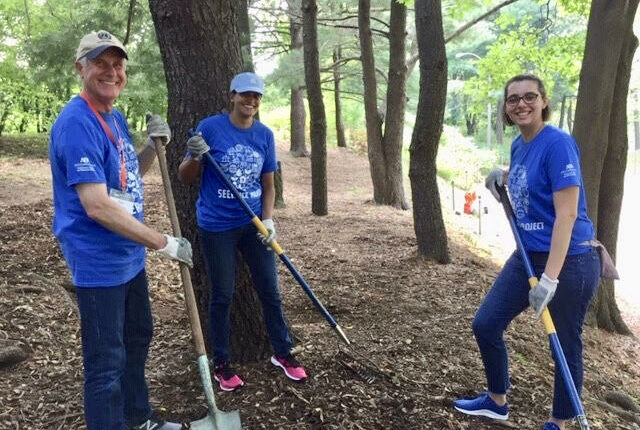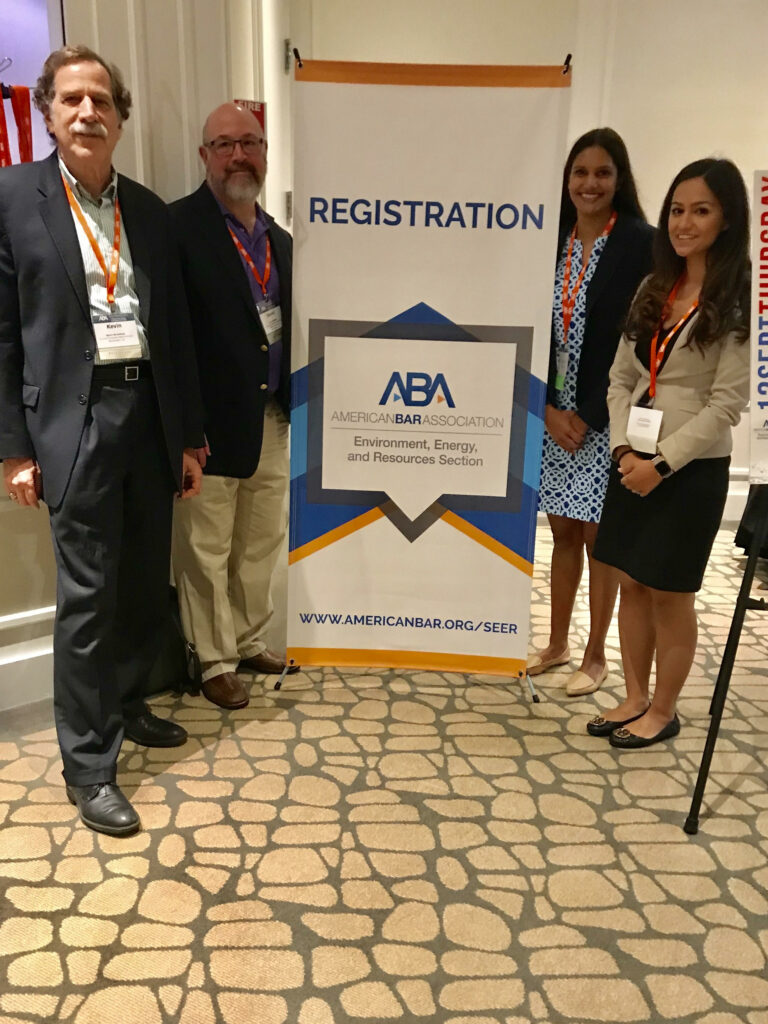
Advocacy’s Environmental Law Team Travels to ABA Conference
By Prianka Sharma, Assistant Chief Counsel
Last month Advocacy’s team of environmental law attorneys traveled to Boston to participate in the fall American Bar Association Section of Environment, Energy and Resources conference.
While most of the panels and presentations centered around updates to the law and policy under which regulations are written, two of the discussions were focused on streamlining permitting requirements under various environmental statutes.
One panel focused on hurdles in infrastructure permitting. Panelists spoke about how implementation and enforcement of regulations such as the National Environmental Policy Act (NEPA) are not consistent across all agencies. For many major infrastructure projects, businesses are required to obtain at a minimum eleven different permits and engage with seven different agencies. This takes an enormous amount of time and resources and creates major regulatory uncertainty while the business waits for decisions from each agency. Panelists stated that regulatory certainty is the key to sustainability for both industry and consumers. Businesses need to know that the plans they are creating and applying for permits for now, will still hold years from now when they finally get decisions.

(L to R)
On December 2, 2015 the FAST Act was signed into law to improve federal environmental review. Referred to as “Fast-41” it created a Steering Council to oversee the implementation of the Act. The Act is intended to streamline reviews by designating a lead agency and promoting early consultation and enhanced interagency coordination on project plans and proposals. In addition, FAST-41 created an online public dashboard where businesses can track where they are in the review process in real-time. Panelists and industry believe this is a step in the right direction in terms of streamlining overly burdensome permitting processes and reducing the bottleneck of decisions coming from multiple agencies, however they want to see further action on the underlying policies as well. They mentioned the Whitehouse Council on Environment’s Proposed Rule to Revise Policies and Procedures under NEPA as well as various other agency’s attempts to revise these policies and procedures.
Another panel discussed permitting and other considerations for wind energy projects. One panelist spoke on behalf of a trade association representing small fisheries. She stated that the issue for very small businesses is that they do not feel as though they are included in agency outreach efforts and decision-making processes. She said that often they are invited to meetings where they do not understand the data and projects being discussed and that more care and effort should be made to ensure that all entities understand the implications of the project proposal so that they have an equal chance to provide public comments. One panelist spoke about the need for developers to do their own front-end outreach to the other businesses that may be affected by a project plan to see if there are ways they can work together up front. Doing business requires considering not just the hard costs (capital, revenue etc.) but also soft costs (impact on nearby businesses and the community) and balancing and weighing both interests so that all parties can try to reach a compromise. He stated that early engagement is key to the success of any project.
In addition to the substantive programming, Assistant Chief Counsel Prianka Sharma also participated in a service project with a local small non-profit, doing river cleanup activities along the Charles River. As Advocacy travels to communities to speak with small entities, it is also important to take time to give back to the communities themselves so that we can better understand the various issues that impact them and be better Advocates for their concerns.
Prianka Sharma is an Assistant Chief Counsel for Advocacy whose portfolio includes agriculture, energy, and natural resources. Sharma can be reached at Prianka.sharma@sba.gov.
